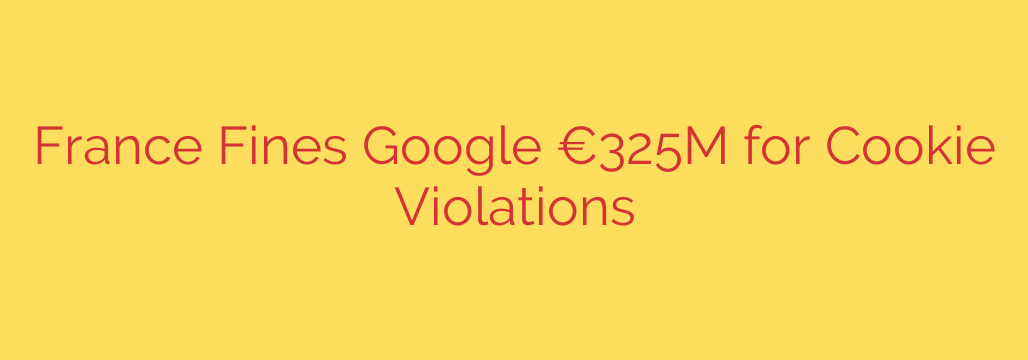
Google Hit with €250 Million Fine Over AI Training and News Publisher Disputes
In a significant ruling with far-reaching implications for artificial intelligence and digital copyright, France’s competition authority has imposed a €250 million fine on Google. The penalty addresses the tech giant’s failure to comply with commitments made regarding how it negotiates with news publishers for the use of their content.
At the heart of the matter is the charge that Google used articles and media from French publishers to train its flagship AI model, Bard (now Gemini), without notifying the publishers or the regulatory body. This action has been deemed a serious breach of the commitments Google made to negotiate in good faith for the use of copyrighted material.
The Core Breaches: A Breakdown of the Ruling
The French watchdog, the Autorité de la concurrence, identified several key failures on Google’s part, leading to the substantial fine. These breaches highlight the growing tension between tech innovators and content creators in the age of generative AI.
The primary violations include:
Failure to Negotiate in Good Faith: The authority found that Google did not conduct transparent and fair negotiations with all news publishers to determine fair compensation for the use of their content, a principle known as “neighboring rights” under EU law.
Unauthorized Use of Content for AI Training: The most notable breach involves Google’s scraping of content from French news agencies and publishers to train its foundational AI model. This was done without providing publishers a clear technical opt-out that wouldn’t also negatively affect the display of their content on other Google services, such as Google Search.
Lack of Transparency: Google failed to inform publishers that their content was being used for this purpose, depriving them of the ability to negotiate fair terms for a significant new use of their intellectual property.
This ruling underscores a critical legal and ethical question: who should benefit when AI models are trained on vast amounts of copyrighted online content? Regulators are making it clear that using this data is not a free-for-all and requires explicit consent and fair compensation.
The Broader Implications for AI and Copyright
This isn’t just a French issue; it’s a landmark decision that will reverberate across the global tech and media landscape. Publishers and content creators worldwide are closely watching as they grapple with how to protect their work from being used by AI developers without permission or payment.
The ruling establishes a powerful precedent, suggesting that tech companies cannot unilaterally decide to use protected content to build their commercial AI products. It reinforces the idea that the intellectual property that fuels these powerful models has immense value and that its creators must be at the negotiating table.
Google, for its part, has accepted the findings and will not contest the fine. In a statement, the company acknowledged that it had not been transparent enough about the use of data for its AI and has committed to resolving the issues.
Security and Actionable Advice for Content Creators
This case serves as a critical reminder for publishers, businesses, and individual content creators to be proactive in protecting their intellectual property.
- Review Your Terms of Service: Ensure your website’s terms explicitly state how your content may or may not be used, including for AI training or data scraping.
- Explore Technical Opt-Outs: Investigate and implement technical signals to prevent unauthorized scraping. While not foolproof, tools like the
robots.txtfile can be configured to block crawlers. Google has proposed a new tag,Google-Extended, to allow publishers to block their content from being used in AI models like Gemini. - Stay Informed on Copyright Law: The legal landscape surrounding AI and copyright is evolving rapidly. Staying informed about new regulations and court rulings is essential for protecting your rights.
Ultimately, this €250 million fine is more than just a financial penalty. It is a clear signal from regulators that the era of unchecked data harvesting for AI development is coming to an end, paving the way for a more equitable and transparent digital ecosystem.
Source: https://www.bleepingcomputer.com/news/security/france-slaps-google-with-325m-fine-for-violating-cookie-regulations/








